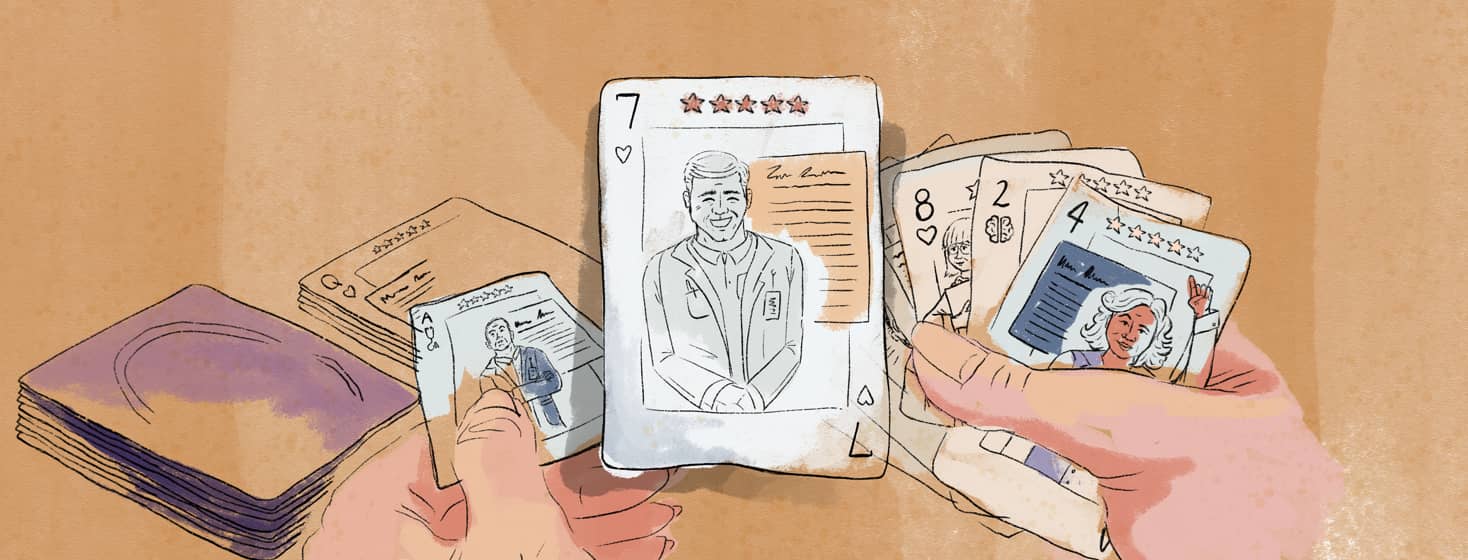How to Find a Good Neurologist
I’ve been living with migraines since I was 7 years old. So, naturally, I’ve met with my fair share of neurologists over the years. I’ve also seen a lot of migraineurs in my nutrition coaching practice.
As you can imagine, one of the questions I get asked most often is, can you recommend a good neurologist?
If I’m being honest, I kind of cringe each time I’m asked because I don’t have a go-to recommendation that is appropriate for everyone. And I certainly can’t speak to every neurologist. However, here’s what I found to be important when finding the right neurologist for you.
What do you need?
What do you need most from a neurologist? Do you need someone who can provide you access to:
- Diagnostic imaging?
- Preventative medication?
- Rescue medication?
- Physical therapy or other complementary services?
- Alternative therapies?
You might be thinking, "All of the above," but at least try to prioritize your needs so you know the one that is of the greatest importance to your care.
What is unique about your migraine experience?
It’s also important to get clear on what is unique about your migraine experience. Are the migraines you experience:
- Hormone related?
- Frequent but not debilitating?
- Debilitating and often requiring hospitalization?
- Accompanied by vertigo?
All of these will help you to fine-tune a search and ask for more targeted recommendations.
What should their credentials be?
It’s easy, and certainly important, to look online at their credentials, but I like to take it one step further. I want to go beyond the name of their medical school and place of residency to know what services they can provide me and what they specialize in.
If I frequently end up in the hospital with migraines, I want a neurologist associated with a good hospital. If I’m someone suffering from hormonal migraines, I want to go to someone who is well versed in women’s health. If I experience vertigo with migraines, it would be really helpful to see a neurologist who has experience with vertigo. So, as you’re seeking out a neurologist, consider any unique factors that would be ideal for them to have experience in.
What should you know about their practice?
Remember that when you’re selecting a neurologist, you’re also selecting the practice too. The doctor is the one that, as patients, we ironically see the least. We spend more time scheduling appointments, calling about insurance coverage and medication refills, driving to and from the office, and so on. Just as much as you want to have a good neurologist, you want to have a good experience with the practice too.
To get a preliminary sense of the practice, pay attention to your experience when you call about scheduling a new patient appointment.
- How long are you on hold?
- How are you greeted by the office staff?
- How soon can you get an appointment?
- Is the commute to the office reasonable for you?
These don’t have to be dealbreakers, but they are important factors. On the flip side, when checking out a practice, you can inquire about other services that they provide. You might find that they offer osteopathic manipulation there, and that’s something that is really appealing to you.
Do they meet your most important needs?
I just laid out steps to help you find a well-trained neurologist that will best address your unique needs, but I have to add this caveat. Don’t stress yourself out looking for a unicorn neurologist. You might not find one doctor that meets all your needs. Seek the one that meets your most important needs.
For example, addressing food triggers has been a game changer for me in managing migraines, so that’s something that is obviously very important to me. As much as I wanted a neurologist who mirrors that same mindset with me, I go to a neurologist who knows very little about nutrition. However, I continue to go to him because he’s associated with a top hospital with the latest MRIs, and he stays current on medication options. I can’t get any of those on my own. So, I just accept the fact that I don’t go to him for nutrition advice, and that’s okay.
What tips do you have for finding a good neurologist?

Join the conversation